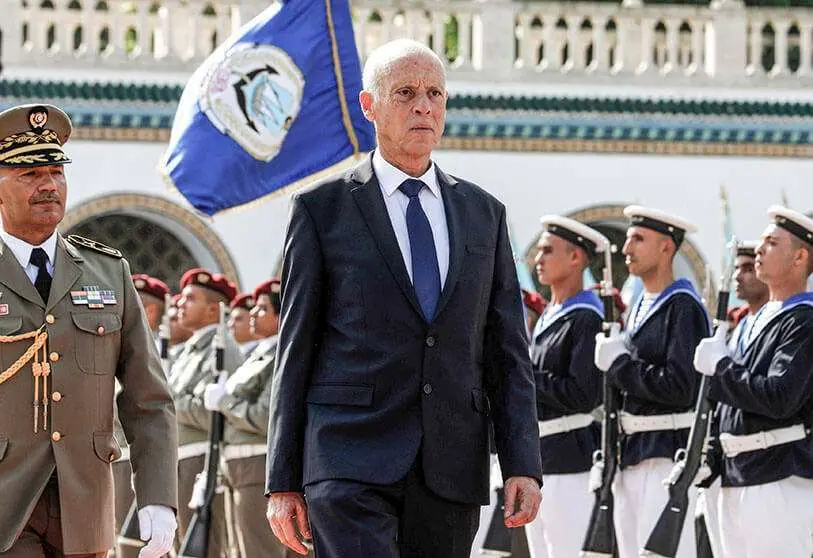Tunisia will never accept the partition of Libya

Eclipsed by the COVID-19 pandemic, the entrenched conflict in Libya threatens to shake up all of North Africa and project its shockwave onto southern Europe. Nine years after the fall of Muammar Gaddafi's regime, his giant country is on the verge of "Syrianization," a term used by French Defense Minister Jean-Yves Le Drian to describe a scenario of long-running multinational confrontation, capable of provoking a radical upheaval on three continents: Africa, Europe and Asia.
Apart from Libya itself, one of the countries that suffers most from the consequences of its conflict is Tunisia, whose President Kais Saied has made his first visit to France, where he has declared that his country "will never accept a partition from Libya, this could be the prerequisite for a partition also of neighboring states.". The Tunisian head of state, who last October won the elections in a landslide and by surprise (72.71% of the votes), is increasingly concerned about the establishment of a de facto Russian-Turkish condominium in Libya, with a distribution of territorial influence that Europe seems to be attending with a certain feeling of impotence.
It was at the beginning of June that Marshal Khalifa Haftar, a former member of the Gaddafi circle of trust, was defeated at the very gates of Tripoli. He was then exiled to the United States for two decades and returned to the country in 2011 to settle in Benghazi, the capital of Cyrenaica. With the consent and protection of France and Egypt and the consent of the United States, Haftar sought to reunify the country under his command. His failure in attempting to take Tripoli has given new life to the Government of National Accord (GNA), of Fayez Sarraj, which was unambiguously supported by the Turkish President, Recep Tayyip Erdogan.
Haftar, the self-appointed leader of the so-called Libyan National Army (LNA), has retreated, so that the line marking the border between his area of influence and Tripolitania passes through Sirte, Gaddafi's hometown. The marshal, who has the support of Russia and the mercenaries sent by President Vladimir Putin, has also received the unconditional backing of the Egyptian President, Abdel Fatah Al-Sisi, who directly threatened the GNA with sending his troops if Sarraj dared to cross the "red line" that connects Sirte with the Yufra base, located 250 kilometers to the south.
The scenario is therefore prone to a de facto split, with starting positions where no free transfers are in sight. The ambivalent relationship between Turkey and Russia in Libya is reminiscent of that in Syria, the operational scenario from which the United States emerged. The main difference between the two scenarios is that neither Iran nor the Kurds are in Libya, but it is clear that both Putin and Erdogan aspire to consolidate their presence in the eastern Mediterranean. Both also possess abundant exchange material. Erdogan still holds the key to the straits between the Black Sea and the old Mare Nostrum, as well as having established a wide security strip on the Turkish-Syrian border, and of course he wants Russia to support him in his claims to the recently discovered gas fields off his coast, those of Cyprus and Israel. In return, Putin would consolidate the power of his ally Haftar over the Libyan Cyrenaica and, thus, domination over the large oil fields, and the lock pick to tighten the screws on Europe, for example, with the migratory pressure from the Libyan coast.
In short, the Tunisian President's warning sounds like a wake-up call with regard to the geopolitical upheaval that would result from the partition of that failed state which is Libya at the moment. Kais Saied wants Algeria on his side in trying to prevent this, and he calls for a solution to the Libyan conflict between Libyans. However, the facts do not seem to support him, just as there is no sign of a decisive action by a Europe that has yet to reach an agreement regarding its own recovery and, in short, to continue to exist and deal with the threats it faces with a little more determination.

